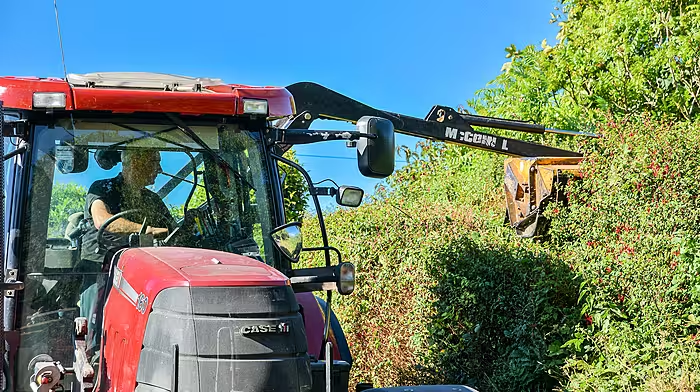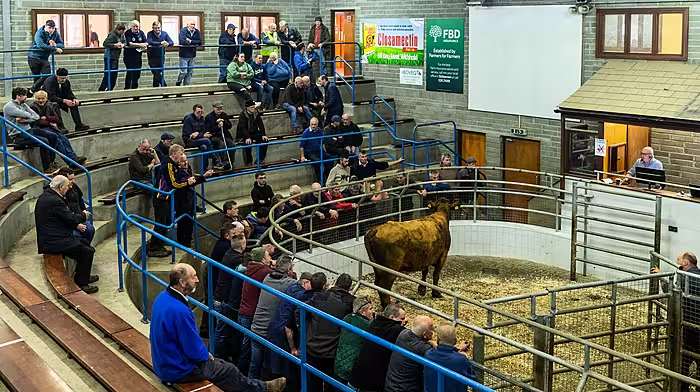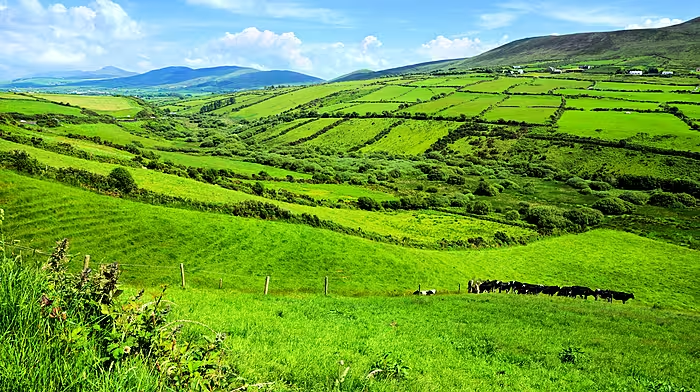IT’S vital that farmers and factories work together to steady the beef trade at this critical time.
That’s according to local IFA leaders as Covid-19’s impact on the agricultural sector continues to deepen. Animal prices are starting to drop in factories as they themselves have lost major customers, including McDonalds and Supermacs, along with the almost entire collapse of the food service sector both domestically and internationally.
However, IFA national livestock chairman Brendan Golden said major responsibility is with the factories not to pull prices and undermine the trade. In the meantime, farmers need to avoid moving any under-finished cattle.
‘With orderly marketing, cattle supplies are expected to tighten over the next number of weeks and this should help steady the trade,’ he said.
West Cork IFA chairman Donal O’Donovan, from Dunmanway, said prices were already down 15c per kg (from around €3.65 to €3.50) and, while acknowledging that factories were also impacted, he urged that the prices be restored.
IFA has put a detailed set of proposals to Agriculture Minister Michael Creed to push for supports at EU level. Specifically the organisation is demanding that all non-EU beef imports, especially South American beef imports, which fail to meet EU standards, should be suspended.
Mr O’Donovan also called on Bord Bia to heavily promote Irish meat curing the crisis and he called on consumers, while being mindful of household’s changing circumstances, to buy Irish cuts.
‘If it came to it, we’d also be looking, at EU level, for beef to go into private storage,’ he said. Meanwhile, in some good news, marts are now allowed proceed with sale of animals under strict protocols agreed by the Department of Agriculture.
Marts will match buyers and sellers, weigh animals and oversee the sale, however there will be no public auctions and no crowds attending.
Despite this, the IFA’s livestock spokesman for West Cork, Robert Ellis, said cash flow problems were a major factor for lots of farmers right now. The Drinagh farmer said he knew some farmers who bought cattle at the start of the year in a bid to recoup losses from last year, as they expected prices to rise.
‘They have now been hit a double whammy. But all farmers can do at this stage is to try to stay cool as best they can, but of course some will be able to absorb this better than others,’ he said.
Brendan Golden said the IFA is working with the marts and the Department to ensure alternative and safe arrangements are put in place which would allow cattle to continue to move and to be sold.
He said marts had weighing facilities and a system that provides security of payment, which are critical for farm-to-farm movements.
The IFA livestock leader said they had also been in contact with a number of the main banks to emphasise the need for flexibility.
IFA has made a number of proposals, including that the banks would increase or extend working capital and overdraft facilities as well as providing lower-cost loan products for farmers and allowing for an interest and capital repayment break of up to six months.
Meat Industry Ireland (MII) senior director, Cormac Healy said that, ‘despite the major market impact of the Covid-19 pandemic on meat markets across Europe, in particular the food service channel, meat processing is continuing at facilities across the country, albeit at reduced levels.
‘Significant protective measures and protocols are in place for all staff, farmers and service providers. Meat processing is essential to continuity of food supply in the domestic, European and international supply chains and to facilitate orderly movement of animals from farms.’
However he added: ‘The pandemic is causing serious devaluation of finished livestock prices as key market channels and certain EU markets are effectively closed and the mix of sales through retail outlets is skewed heavily towards lower value cuts. MII has communicated these market issues to all the stakeholders and to the government.
‘While traditional market supports (intervention and APS) may not work in this case, other forms of support must be brought forward by the European Commission without delay.’
Meanwhile, ICSA sheep chairman Sean McNamara said the sheep trade had been badly hit by Covid -19: ‘The hogget price has taken a serious hit this week with quotes now at €5.30, well below the typical price in excess of €6 over the past few weeks. We are calling for an explanation from meat plants as to the exact cause of this.
‘It is not good enough to collapse price without so much as an outline of what is happening. We also need an explanation as to why processors are continuing to import lambs from the North at this time.’










